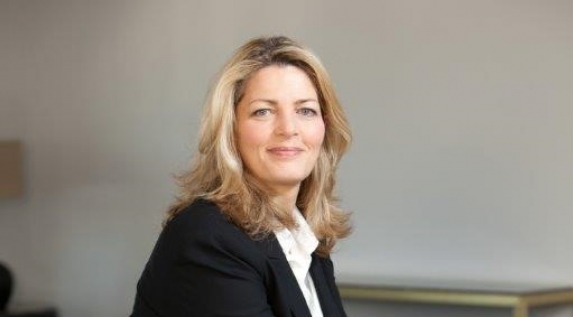
Brexit: what consequences for the banks?
Papa Demba Diop is a sales director at Societe Generale's subsidiary in Burkina Faso.

How would you describe Societe Generale's strategy on the African continent? What opportunities and challenges are there for implementation?
It is true that Africa now has the wind in its sails on the world stage, but Societe Generale has not waited for the continent to become fashionable, since we have been present in Africa for over a hundred years. We operate in French-speaking Africa, English-speaking Africa (in Ghana and Kenya, where we have just opened a representative office) and Portuguese-speaking and Spanish-speaking Africa (in Mozambique and Equatorial Guinea). In most of these countries, we have significant market shares. In terms of strategy, Africa is therefore a historical relay for Societe Generale's growth.
In Africa, we operate with two types of clients: individuals and companies. We serve nearly three million individual and approximately 150,000 business customers. Our corporate strategy is to put Société Générale's expertise and know-how at the service of our business partners, whether they are African or international. We have also set up regional clusters, creating a trading room in Abidjan (Côte d' Ivoire) and structured financing hubs in Abidjan and Casablanca.
From my point of view, private individuals present a challenge that is both original and innovative. Alternative distribution models are emerging: mobile banking, mobile payment, mobile agencies. This led us to create a LAB Innovation based in Dakar in order to support the evolution of our distribution methods and to promote bancarisation in Africa. We have deployed mobile trucks in Burkina Faso that go to meet clients in the villages but also officials posted in the provinces. In Burkina Faso, we deployed one of the first digital banking agencies in the UEMOA zone, WELI BANK, to offer banking services to our wealthy clients accustomed to international standards.
You are the president of Manko in Senegal, a new offer that allows unbanked and underbanked populations to access all banking services (payments, credit, savings) by mobile phone. How is this operation a revolution for the bank?
We launched Manko in 2013 in order to bring a new way of consuming the bank in Africa. Manko is a disruptive model halfway between traditional banking and microfinance. Scooter advisers, equipped with tablets, help small shopkeepers and craftsmen getting loans directly to their business premises, saving our customers considerable time and money. They were previously forced to close their shops to go to the bank. In the space of 5 years, we have contributed to the financing of the Senegalese economy with cumulative outstanding amounts of nearly 35 billion CFA Francs. Nearly 10,000 customers now trust us. Building on this success, we plan to open about 20 new branches.
Manko is a new alternative banking solution, a laboratory to test new solutions in sub-Saharan Africa. We would like to be able to replicate this model in other African countries.
In sub-Saharan Africa, mobile phone banking services have been booming in recent years, much more than in other parts of the world. How can we explain this boom? Does mobile money really solve the lack of financial inclusion?
Mobile money has enormous potential, with nearly 250 million users expected in Africa by 2019. The mobile money market could be worth close to a billion and a half dollars. This phenomenon has been on the rise as transfers and bank withdrawals to pay water or electricity bills are not widespread in Africa.
Banks generally adopt two mobile money strategies: some choose to enter into partnerships with telephone operators and others decide to have their own internal solutions, which is Societe Generale's position.
At Societe Generale, we have developed Yup, an internal mobile money solution that allows our Cameroonian, Senegalese and Ivorian customers to pay their bills, shop at retailers, and transfer money to their loved ones. As a bank, we have the advantage of being able to manage large cash flows and have deep relationships with companies. Banks like ours therefore make mobile money a core part of their business because it's an unescapable opportunity.
Competition in West Africa is less developed than in East Africa, which gives us a privileged strategic position in this West African region.
In terms of financial inclusion, mobile money, and other alternative models, are avenues for developing banking in Africa. However, mobile money only covers part of the banking needs, payments and money transfers. It does not allow its users to borrow, which is an essential component of financial inclusion.
In Senegal, Societe Generale has developed a Manko offering that enables bank loans and deposits to be made. In Burkina Faso, we have developed a mobile banking model, with trucks that travel across rural areas to reach villagers and provincial officials.
Despite the emergence of these innovative offerings, more than 300 million Africans lack access to banking services. What are the main challenges of financial inclusion in sub-Saharan Africa and how to address them?
The first barrier to financial inclusion is the weakness of long-term savings. Because the informal economy is highly developed, most Africans do not deposit their savings in banks, or for relatively short periods of time. Today, however, both personal bank loans and business investment are carried out over relatively long periods of time. There is therefore a mismatch between the duration of savings and needs over time. In France, this problem was solved with the development of life insurance and PEA (Share Savings Plan). We would also benefit from developing this savings in Africa.
Secondly, Africa today needs major investments to develop infrastructure. This need is estimated at nearly $100 billion a year! That is considerable, and the banking system cannot provide that investment. So what we need to do is develop real financial markets, like Euronext. Existing markets are both too numerous and too narrow: we must move towards a mutualisation of financial markets to make them more productive.
Secondly, the fabric of SMEs is very important on the continent, but these SMEs are not sufficiently capitalised, they have little funding and do not provide sufficient reliable accounting and financial information. These problems are often compounded by a certain porosity between the manager's wealth and the company's assets. It is therefore necessary to develop the guarantee solutions proposed by AFD (French Development Agency) and the World Bank so that risks are shared by all stakeholders.
Finally, Africa is still underdeveloped in terms of digitisation. We must continue the march towards digital technology, because traditional banking as we know it in Europe will not see the light of day on the continent. Societe Generale is making its contribution by incubating digital start-ups within the group itself. We also organized a hackathon with actors of the informal economy from all over Africa to develop financial inclusion.
Societe Generale is mainly present in French-speaking African countries but English-speaking countries also have interesting banking opportunities. What is the impact of cultural and linguistic differences on SG implementation choices?
Historically, Societe Generale has established itself in Africa to support its French clients in Africa. With the emergence of globalization, we have expanded into other regions to support our local customers. Since 1st January 2018 we have deployed a regional organisation at the level of Africa with five regions: Morocco, the Maghreb excluding Morocco, West Africa, Central Africa and the French overseas departments and territories. This region-centred approach makes it easier for us to identify African specificities.
This question of intercultural management is very interesting, because there can be no internationalisation without taking into account the HR aspect. For the past few years, we have had a program to identify and develop African talent, which is why many of our subsidiaries are now run by nationals. People with a dual culture are particularly valued.